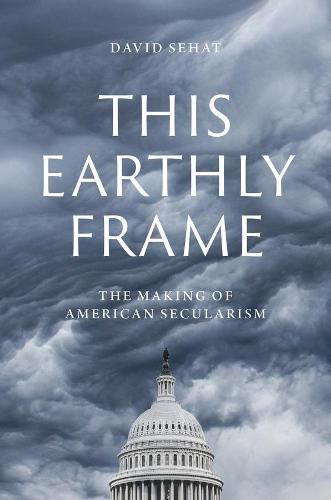Readings Newsletter
Become a Readings Member to make your shopping experience even easier.
Sign in or sign up for free!
You’re not far away from qualifying for FREE standard shipping within Australia
You’ve qualified for FREE standard shipping within Australia
The cart is loading…






An award-winning scholar’s sweeping history of American secularism, from Jefferson to Trump
An essential book for understanding today’s culture wars. Sehat’s clear-eyed and elegant narrative will change how you think about our supposedly secular age. -Molly Worthen, University of North Carolina at Chapel Hill
In This Earthly Frame, David Sehat narrates the making of American secularism through its most prominent proponents and most significant detractors. He shows how its foundations were laid in the U.S. Constitution and how it fully emerged only in the twentieth century. Religious and nonreligious Jews, liberal Protestants, apocalyptic sects like the Jehovah’s Witnesses, and antireligious activists all used the courts and the constitutional language of the First Amendment to create the secular order. Then, over the past fifty years, many religious conservatives turned against that order, emphasizing their religious freedom.
Avoiding both polemic and lament, Sehat offers a powerful reinterpretation of American secularism and a clear framework for understanding the religiously infused conflict of the present.
$9.00 standard shipping within Australia
FREE standard shipping within Australia for orders over $100.00
Express & International shipping calculated at checkout
An award-winning scholar’s sweeping history of American secularism, from Jefferson to Trump
An essential book for understanding today’s culture wars. Sehat’s clear-eyed and elegant narrative will change how you think about our supposedly secular age. -Molly Worthen, University of North Carolina at Chapel Hill
In This Earthly Frame, David Sehat narrates the making of American secularism through its most prominent proponents and most significant detractors. He shows how its foundations were laid in the U.S. Constitution and how it fully emerged only in the twentieth century. Religious and nonreligious Jews, liberal Protestants, apocalyptic sects like the Jehovah’s Witnesses, and antireligious activists all used the courts and the constitutional language of the First Amendment to create the secular order. Then, over the past fifty years, many religious conservatives turned against that order, emphasizing their religious freedom.
Avoiding both polemic and lament, Sehat offers a powerful reinterpretation of American secularism and a clear framework for understanding the religiously infused conflict of the present.